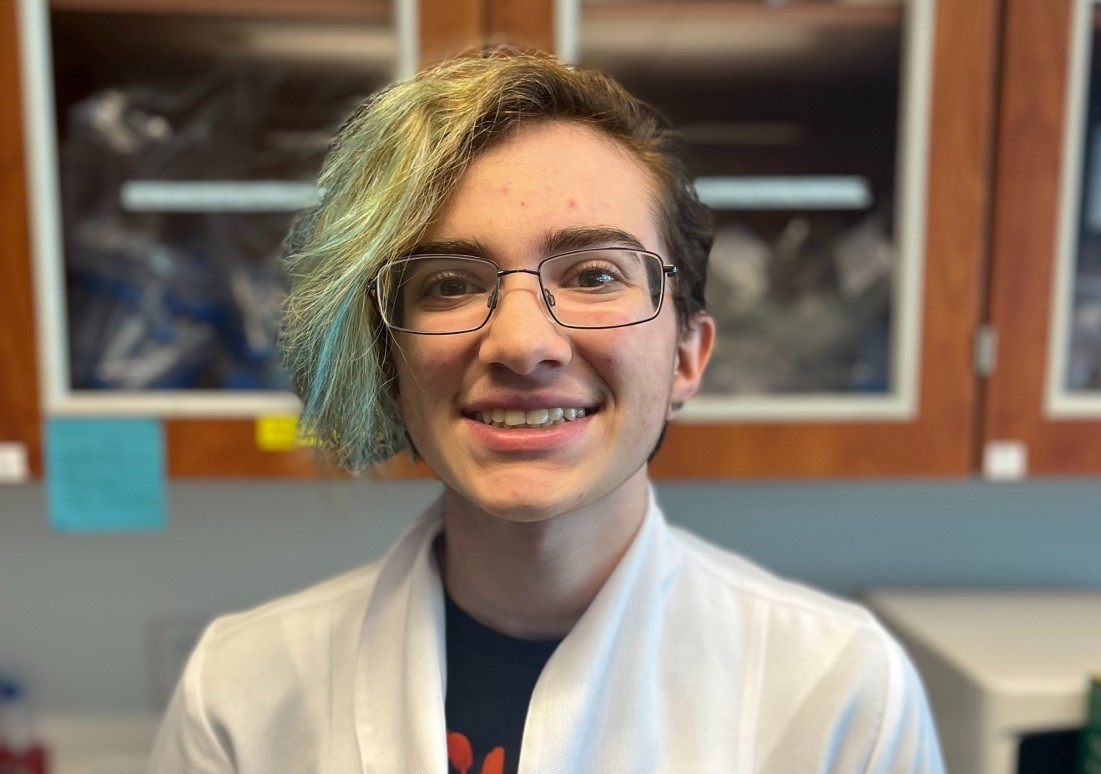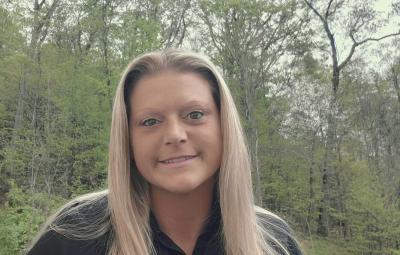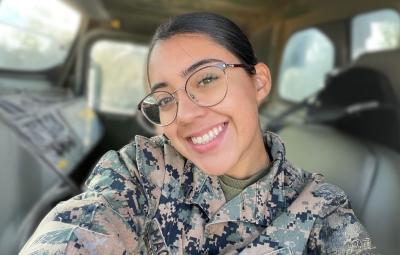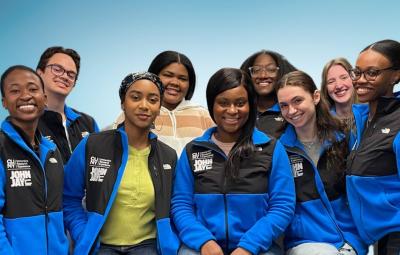
Major: Cell & Molecular Biology
Minor: Environmental Justice
Programs: PRISM; CUNY Inclusive Economic Initiative
Mentors: Professors Lissette Delgado-Cruzata, Karen Malpede, and Julie Kiss
Hometown: Brooklyn, NY
Career Aspiration: Environmental Researcher
“Being able to conduct research at John Jay affirms my passion for working in a lab setting and producing work that helps improve people’s health. I hope to work as an environmental researcher one day, looking at bacteria and dangerous pathogens that get people sick. My goal is to find ways to prevent sickness from occurring, especially in underserved, poor communities.”
What was life like before John Jay?
Growing up, I always liked science. I read science journals, National Geographic, and all about what NASA was doing. I was constantly annoying people with all the random science facts I knew. But in high school, when asked: “Where do you want to go to college? What do you want your career to look like?” I had no clue. Then I took a science class with a lab component, and it was like, “This is it. I love this. I want to conduct research.”
Why John Jay?
Initially, I wanted to be a forensic pathologist—either for the city or a private organization—but what I soon realized was that I thrived in a lab setting. Through PRISM, I explored different science fields and conducted loads of lab research.
Are there any specific people at John Jay who have helped put you on a path to success?
Professors Julie Kiss and Karen Malpede have both been pivotal to my success at John Jay, as well as Dr. Lissette Delgado-Cruzata. Her lab is the first one I’ve worked in outside the classroom. From the beginning, Dr. Delgado-Cruzata told me, “Stop thinking like a student. Think like a researcher.” There was a shift when she said that. Because when you think like a student, the procedures are already printed out for you, or at the very least put on a website, all you have to do is follow the steps. But as a researcher, you’re leading the way. You’re having to figure out your “why.” You’re creating your own procedure using your own ideas, troubleshooting issues, and using your critical thinking skills. That way of operating helps you rise to the occasion. You start to find greater confidence in yourself, not just as a person but as a scientist.
What classes helped further your career dreams?
Professor Kiss taught a general biology course that changed my trajectory here at John Jay. It was a course that made science really fun and got me interested in cell and molecular biology. I ended up switching my major soon after taking that class. She’s also running the CUNY Inclusive Economic Initiative here at John Jay, where she meets with students one-on-one, helps us out with our resumes, and connects us to training programs that will make us better-rounded people and employee candidates. Professor Kiss motivated me to get out of my comfort zone, expand my skills, and reach my full potential.
Professor Malpede’s Environmental Justice course truly empowered me. While a lot of courses tell you what the issues are and their negative impact on the world, Professor Malpede showed us how we could be proactive in creating change and providing solutions. She connected us to organizations doing the groundwork to effect change at all levels and encouraged us to attend marches and protests. It went beyond just learning in the classroom; she exposed us to the importance of experiential learning in the real world.
What are you researching with Dr. Delgado-Cruzata?
We’re currently conducting research on the BRCA gene that’s usually associated with very aggressive forms of breast cancer. Specifically, we’re looking at the first exon of the gene and seeing if there’s a correlation between high levels of methylation in that exon and the aggressiveness of the cancer. If we can determine that a correlation does exist, then a drug or type of genetic sequencing can be developed to prevent cancer from developing or, at the very least, provide early intervention for people who have this mutation. The samples we’re looking at are from women of color. It was important for us to focus on this group because they’re often medically underrepresented, go untreated, or have their symptoms ignored by the medical community.



